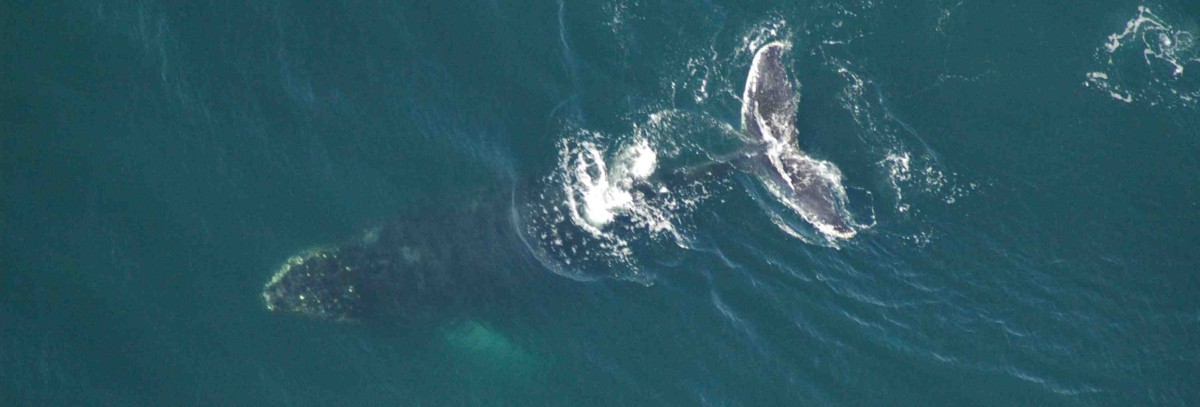Whales, Habitat and Listening Experiment (WHaLE)
Ocean-going vessels pose a threat to large whales. In Canada, vessel strikes and underwater noise are conservation concerns for the many SARA-listed baleen whales. While estimating the risk associated with vessels can be undertaken, information regarding whale species occurrences and whale-habitat associations is relatively poor. Using new and emerging technologies, we can acquire much-needed information on whales in Canadian waters and contribute to efforts to reduce vessel strike risk.
The MEOPAR-supported WHaLE project (Whales, Habitat and Listening Experiment) is an exciting partnership (over 20, including Raincoast) that crosses several disciplines. Led by Dr. Chris Taggart (Dalhousie University), Dr. Dave Duffus (University of Victoria) and Dr. Tejana Ross (Dalhousie University and DFO), WHaLE uses mobile ocean gliders (think underwater drones) and bottom-mounted platforms equipped with passive acoustic monitoring and other sensors to detect whales and characterize whale-habitat relationships. Further, WHaLE explores risk of whale-vessel interactions and is actively developing a near real-time Canadian Whale Alert system to notify nearby vessels of whale presence via AIS-message on Canada’s Atlantic coast.
Currently, Raincoast’s Dr. Paul Paquet contributes to a WHaLE PhD student’s committee (R. Burnham). As well, Dr. Caroline Fox is a Killam Postdoctoral Fellow on the WHaLE project, with research contributions on Canada’s Atlantic and Pacific coasts. Raincoast also acknowledges the Canadian Wildlife Federation for their generous support of WHaLE.
More on WHaLE will be coming soon. Check out these links
Latest Ocean Glider Deployment on Canada’s Pacific coast
Youtube video on Ocean Gliders

